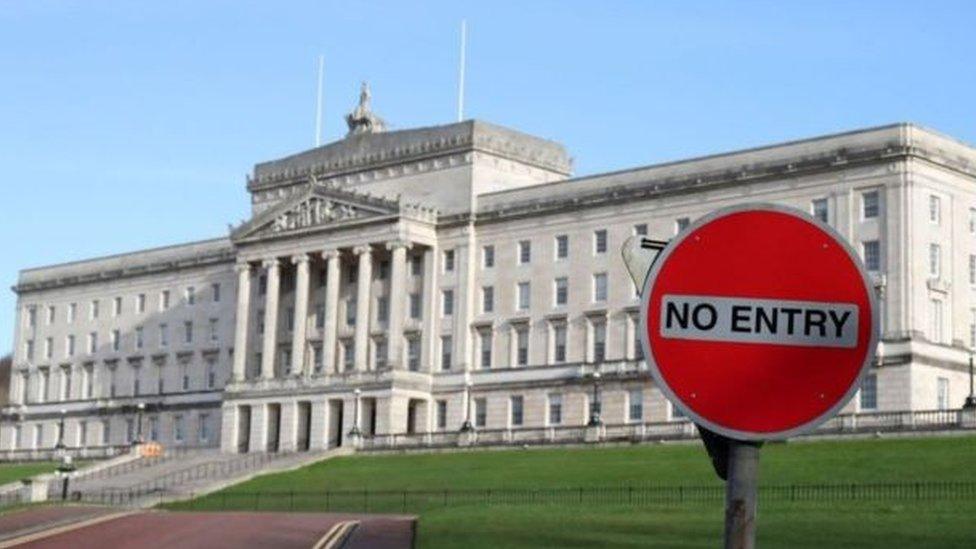UK and Irish PMs 'need to get more involved' in NI talks
- Published
- comments
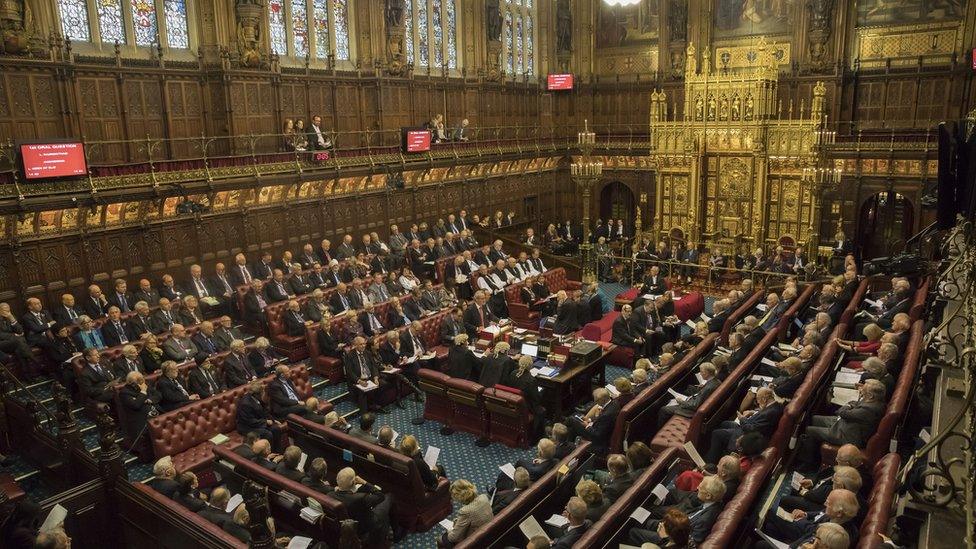
The Northern Ireland Budget Bill has gone through the House of Lords unamended
A former Northern Ireland secretary of state has called on the UK and Irish prime ministers to get more involved in the talks process.
Lord Murphy said Prime Minister Theresa May and Taoiseach Leo Varadkar needed to step up their personal involvement.
"Quite frankly, telephone calls aren't good enough," he said.
He was speaking as the House of Lords gave parliamentary approval to a budget for Northern Ireland, in the absence of a power-sharing executive.
The bill, which was backed by MPs on Monday, will get Royal Assent on Thursday.
Northern Ireland has been without a Stormont executive for 10 months after the Democratic Unionist Party (DUP) and Sinn Féin failed to reach a deal in political talks..
Lord Murphy, who is also a former Welsh secretary of state, told peers: "I do think the weight of the position of prime minister, by actually going to Belfast getting the parties together and talking to them, is hugely symbolic and hugely important."
He said fresh ideas were needed if devolution was to be restored.
He praised the work of Northern Ireland Secretary James Brokenshire, saying he had worked hard during the talks process.
However, he said the budget bill was "not an excuse to give up" and called for a talks process involving all parties.
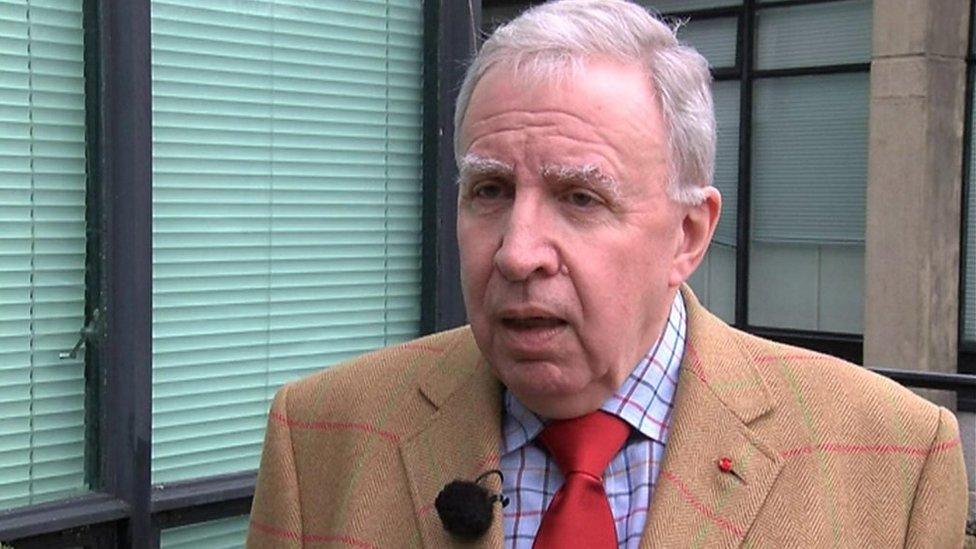
Labour's Lord Murphy was NI secretary from Oct 2002 - May 2005
There was also a plea from Lord Eames, the former Primate of All Ireland, who called on the prime minister to take a greater personal interest in the talks process.
The bill received support from peers across the parties.
Democratic Unionist Party (DUP) peer Lord Hay, the former Assembly speaker, said he wanted to see devolution back but accepted the government had no other option but to bring in the bill.
On the talks process, he said the DUP was prepared to go "the second mile ".
'No other choice'
Former Ulster Unionist Party leader Lord Empey said it was right to bring in the bill but he warned that if devolution disappeared it would be a long time before it returned.
He said there was collective failure on the part of the DUP and Sinn Féin.
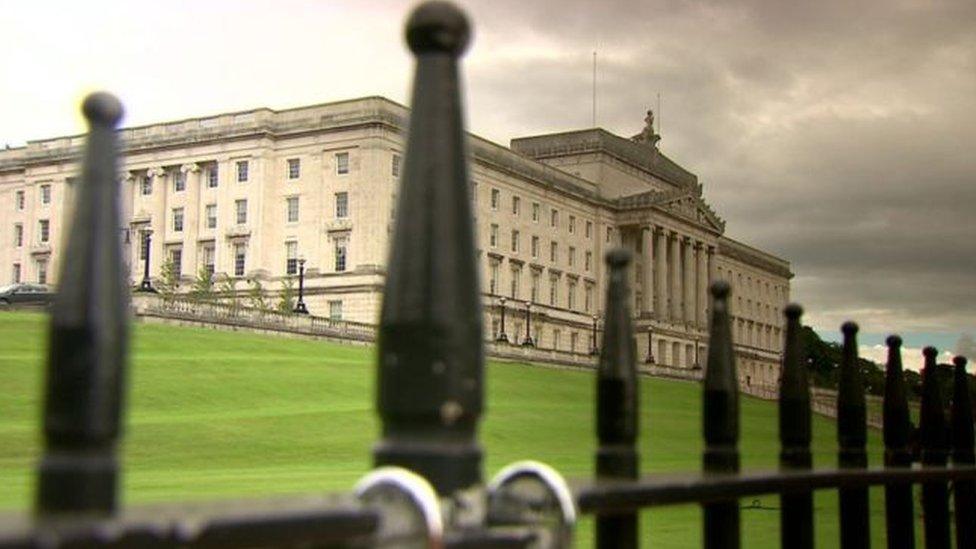
A lack of devolution at Stormont means the budget will be passed into law using Westminister legislation
Baroness Suttie, who speaks for the Liberal Democrats, said there were alternative ways to "save devolution " and she suggested there should be an independent mediator in the talks process.
Moving the Northern Ireland Budget Bill in the House of Lords for the government, Lord Duncan of Springbank said the bill was being presented with reluctance but said there was "no other choice available ".
He told peers the government had to act otherwise Northern Ireland's public services would run out of cash and "no government could stand by and let this happen".
The Conservative peer said the presentation of a bill did not mean a "move to direct rule " and he was keen to stress the bill was not a "UK government budget".
'Tangible consequences'
On Monday, the secretary of state told MPs he regretted having to bring a budget to Westminster but was hopeful an executive could be formed.
Mr Brokenshire also said that the first £50m from the confidence and supply deal between the Conservatives and the DUP will be released in this financial year.
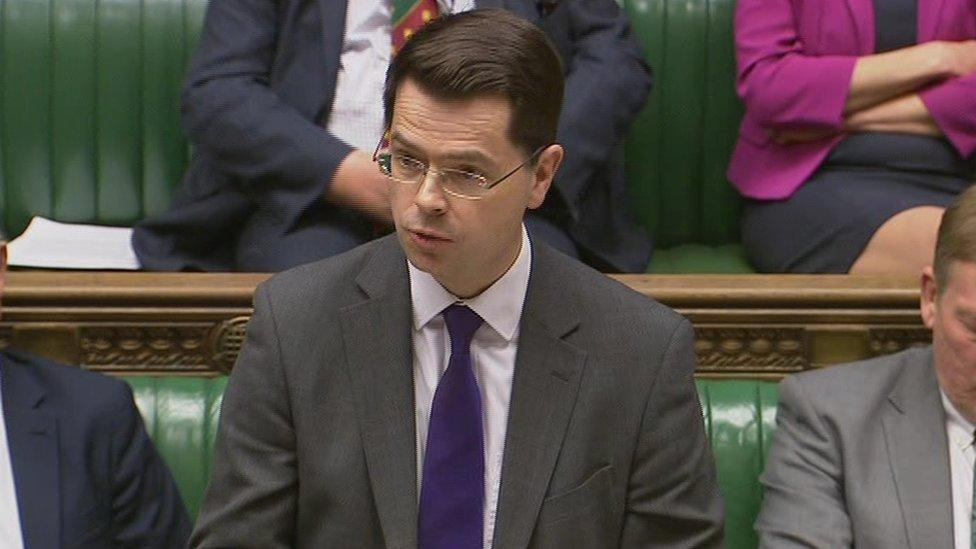
Secretary of State James Brokenshire delivering the Northern Ireland budget in the House of Commons
Speaking in the House of Commons, Mr Brokenshire said the passing of budget legislation "should not be a barrier to negotiations to continue, but the ongoing lack of agreement has had tangible consequences for people and public services in Northern Ireland".
The budget for 2017/18 shows an increase in health spending of 5.4%.
Overall, the amount of money available for day-to-day spending is up by 3.2%, meaning no real increase when inflation is considered.
The education budget is up by 1.5% compared to last year, the justice budget is down by 0.4% and the agriculture and environment budget is down by 3%.
The Department of Finance has cautioned that the budget is not fully comparable to the 2016/17 budget, due to timing differences.
- Published13 November 2017

- Published9 November 2017
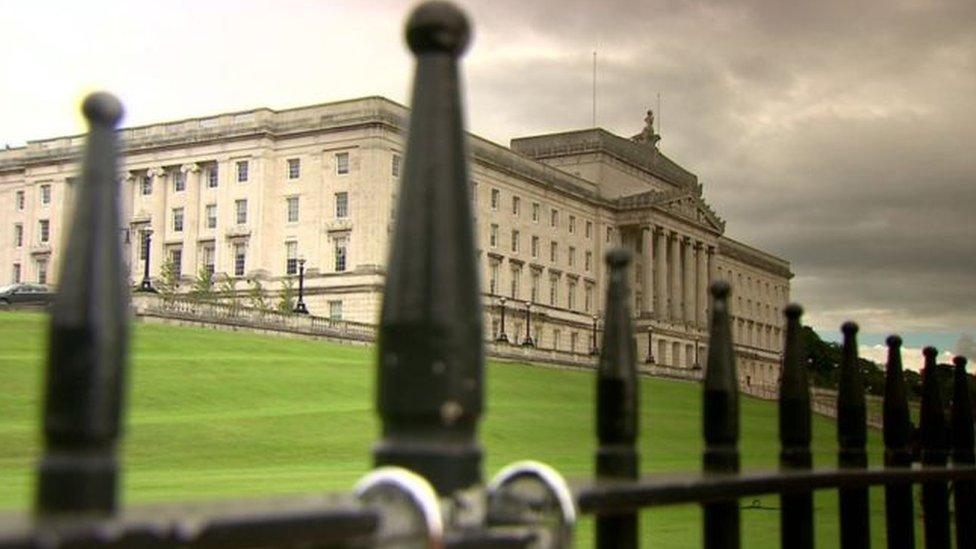
- Published1 November 2017
